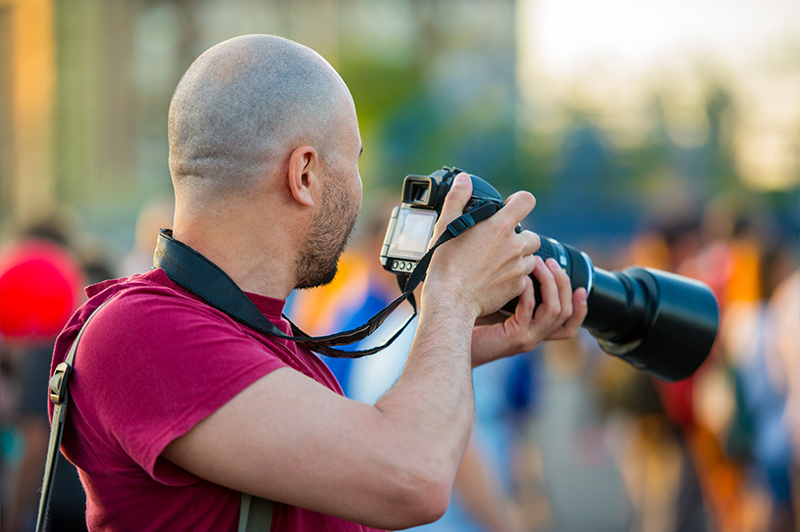As a photographer, you have an eye for something that most people don’t. You can see people and landscapes differently, know when the best light is coming in and how to get the best shot possible. But when your job relies on your physical eyesight, working as a photographer can get a little tough when you rely on your glasses to make sure everything is clearly in focus.
The Viewfinder
To a professional photographer, using the viewfinder is absolutely vital. The viewfinder, where you look through to compose and focus a photograph, allows you to see whether or not your photograph is manually in focus or not. Many people also use the viewfinder because it gives you the clearest image of what you are shooting and helps you avoid reflections on the live view screen if you are shooting outside. Although many Digital Single Lens Reflex (DSLR) cameras have live view screens to help you focus, many photographers still rely on the viewfinder, and this can be incredibly difficult when your glasses get in the way.
Every DSLR camera has a small dial or knob connected to the viewfinder called a diopter, which allows you to adjust the sharpness to match your eyesight. However, if your vision is strongly impaired – chances are it won’t be much of a help because it can only be adjusted so far.
Beyond adjusting your diopter, you can purchase a correction lens that is attached to the viewfinder and helps you see clearly through it without the need of your glasses. Although the correction lens may be affordable, it’s still only a temporary solution and if your eyesight changes, you will have to end up replacing your correction lens throughout the years.
Presbyopia
According to zeiss.ca, those who suffer from presbyopia (also known as farsightedness) tend to have a real advantage when they are looking through a viewfinder without their glasses on. Although you can’t see up close very well, the viewfinder is calibrated so that objects at a distance of 3 feet are in focus, and results in you being able to see things more clearly and sharply.
Editing Photos
Any good photographer will tell you that the work goes beyond the lens of the camera, and you’ll know first-hand that image editing and post production is just as important to the final touches. You’ll also know how meticulous it can be to edit photos and what harm spending all day in front of a computer screen can do to your body and eyes. Computer Vision Syndrome, is caused by a lack of blinking when you are staring at a digital screen device for a long period of time. In an average minute, humans tend to blink about 18 times, but when we are intensely focused on a screen, this blinking time is reduced to half. This can be harmful as our eyes are moisturized by blinking and when we forget, it can result in irritated red and dry eyes.
Contact lenses can also cause your eyes to dry out, so it’s best to avoid wearing them for long periods of time, especially when you are working on tedious computer work or if you don’t require them for close distances.
If you are someone that needs to wear glasses at all times, it’s often hard to make the decision on how to move forward –continue to take photographs with your glasses, wear contact lenses, purchase a custom correction lens or invest in laser eye surgery. Our procedures give you the freedom to photograph life without boundaries, and take opportunities that may have held you back before. Visit Image Plus for a complimentary personal assessment with our vision care team and learn about whether laser eye surgery is right for you and your career!


